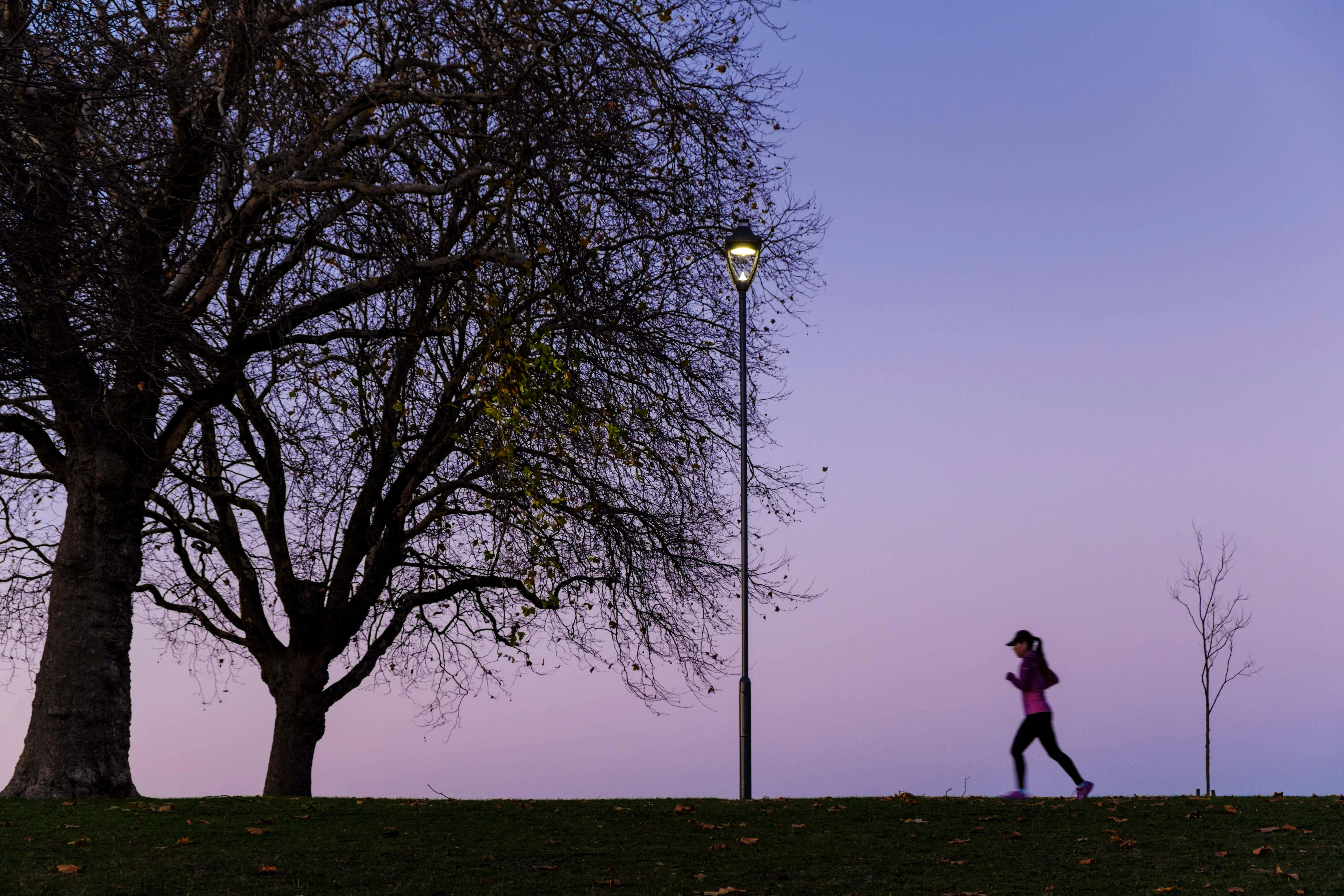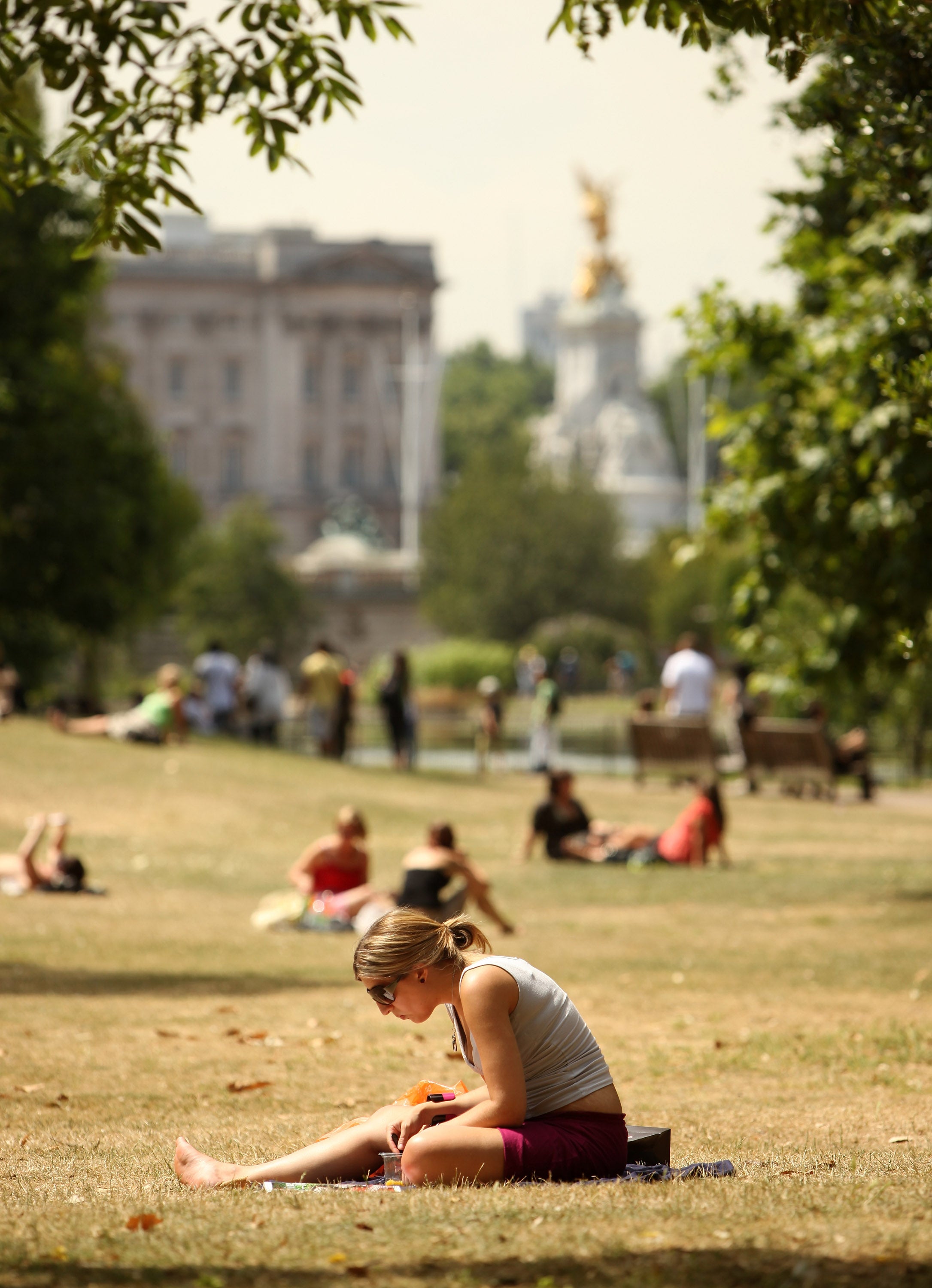Women under exercise ‘curfew’ due to threat of sexual harassment at night
Six in 10 women concerned about the risk of sexual harassment or intimidation when being active as the nights draw in

Your support helps us to tell the story
From reproductive rights to climate change to Big Tech, The Independent is on the ground when the story is developing. Whether it's investigating the financials of Elon Musk's pro-Trump PAC or producing our latest documentary, 'The A Word', which shines a light on the American women fighting for reproductive rights, we know how important it is to parse out the facts from the messaging.
At such a critical moment in US history, we need reporters on the ground. Your donation allows us to keep sending journalists to speak to both sides of the story.
The Independent is trusted by Americans across the entire political spectrum. And unlike many other quality news outlets, we choose not to lock Americans out of our reporting and analysis with paywalls. We believe quality journalism should be available to everyone, paid for by those who can afford it.
Your support makes all the difference.The threat of sexual harassment is stopping women from exercising outdoors at night, with almost two-thirds concerned they will be targeted, a new poll has revealed.
The findings came as female runners gathered in central London as part of a campaign to draw attention to the challenges they face in keeping up outdoor physical activity as winter draws in.
The Censuswide polling of 1,000 women across the UK last month for the This Girl Can campaign found that almost half (48 per cent) do not like to get active outdoors after dark and 46 per cent change their outdoor exercise routine or habits in the darker months.
Six in 10 (60 per cent) women are concerned about the risk of sexual harassment or intimidation when being active as the nights draw in, the survey found.
The run around Westminster on Monday evening, combined with the polling research, was intended to spark conversation around the issue, campaigners said.

Kate Dale, director of marketing at Sport England and This Girl Can, said: “As daylight hours diminish, many women are opting to stay indoors due to safety concerns, resulting in decreased physical activity levels. The impact of this on women’s overall health and well-being is of massive concern and requires both attention and intervention.
“It’s not right that for nearly half the year, we feel we have fewer options to be active in the ways that work for us. And even if we go out despite these fears, it’s harder to get the joy, freedom and confidence that physical activity can bring if you’re constantly looking over your shoulder or monitoring your surroundings.
“It’s yet another emotional barrier, something else we have to manage if we want to build activity into our routines and lives.“Helping women feel safe when getting active is not a singular responsibility; we need everyone to engage with the issue.”

A parliamentary roundtable discussion earlier this month looking at the safety issues women face when getting active, identified key themes and action areas for making sport and physical activity safer for women.
They included better education around respect for and allyship with women, ensuring proper mechanisms are in place to report misogynistic behaviour and planning environments such as sports and games areas in public outdoor spaces with the input of women so they could feel safe.
Campaigners said their wider mission was to close the so-called “enjoyment gap” – saying that 2.4 million fewer women than men enjoy getting active – “by empowering society, including sport and physical activity providers, to make exercise safe, suitable, social and self-affirming for women”.
Join our commenting forum
Join thought-provoking conversations, follow other Independent readers and see their replies
Comments